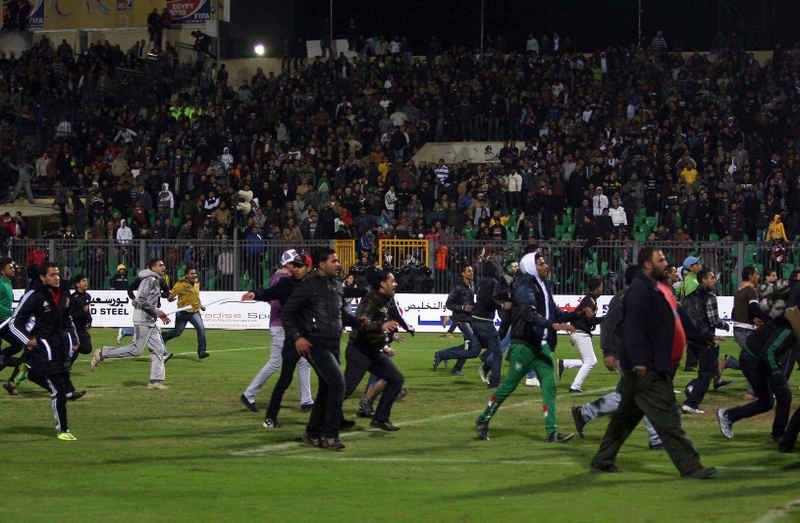By Marwa Al-A’asar
CAIRO: The Muslim Brotherhood (MB) statement that the group is not represented in the Coalition of the Youth of the Revolution reflects a state of political shock at the success of the Friday protests despite their absence, analyst Nabil Abdel-Fattah told Daily News Egypt Sunday.
The MB’s Secretary-General Mahmoud Hussein also said in the statement released Saturday that only two members represent the group in the Coordination Committee to Protect the Revolution.
The MB, Al-Wafd party and other Islamist groups boycotted a massive demonstration on May 27 in Tahrir Square dubbed the “Second Friday of Anger” which witnessed the participation of tens of thousands of Egyptians of various political affiliations.
In a statement earlier, the MB had discouraged citizens from joining the protest in order to avoid rifts between the people and the ruling Supreme Council of the Armed Forces (SCAF).
Several political activists criticized the statement, accusing the MB and Salafi groups of inciting citizens against them, while others saw it a chance to prove that they can succeed without the Muslim Brotherhood.
“The forces behind the January 25 Revolution… took over the scene proving they don’t need those who only showed up on some days of the uprising [after it already erupted] including the Brotherhood and the Salafi groups,” said Abdel-Fattah, deputy head of Al-Ahram Center for Political and Strategic Studies.
The Tahrir protest together with others all over Egypt demanded faster trials for ousted president Hosni Mubarak and his family, former corrupt officials, ex-interior minister Habib El-Adly and the formation of a civilian presidential council to rule the country in the transitional period.
Protesters also made social demands that included setting a minimum wage and drafting a new constitution before parliamentary elections slated for September.
“We did not participate in the protests because we objected to many of these demands,” Brotherhood deputy head Rashad Bayoumy told DNE, denying that the Brotherhood was ever represented in the Youth Coalition, despite press statements by youth member Mohamed El-Qassas and Islam Lotfy that they had the permission of the MB’s Supreme Guide and the Guidance Office to join.
A number of MB youths said they would still participate in the demonstration despite the group’s public boycott.
MB youth member Mohamed Abbas told DNE that he joined other MB youths in the Friday protests in their capacity as members in the Youth Coalition to abide by a unanimous agreement to go to Tahrir, but that they did not represent the Brotherhood.
“We are coalition members who [still] adopt the Brotherhood ideology…but don’t represent the group officially,” Abbas said.
In March internal divisions erupted inside the MB when a group calling themselves the Brotherhood Youths held a conference to call for serious reform, to reevaluate the group’s role in Egypt’s transition towards democracy, and to discuss the group’s newly-established political party.
Brotherhood leaders neither attended the event nor agreed to sponsor it.
The youth made recommendations that included allowing MB members to establish or join any political party as long as it doesn’t contradict the principles of Islam and forming a youth division inside the MB to ensure their participation in the decision-making process.
Yet these recommendations, according to Abbas, have yet to see the light.
The MB had officially announced that its presence in the Jan. 25 protest will only be symbolic. The group only joined the uprising after masses of protesters took over Tahrir Square on Jan.28, dubbed the “Friday of Rage”.
Even though MB leaders were reportedly seen with other opposition figures on Jan. 25, they did not represent the Brotherhood at the time, a statement that Bayoumy strongly refutes.
“This is untrue. We were present since the very beginning… but the number increased later,” he said.
Several political forces accuse the MB of exploiting the revolution to achieve self-serving political goals.
The MB has faced political isolation from other groups since a March 19 referendum on constitutional amendments where 77.2 percent of Egyptians votes yes.
The minority who voted no accused the Brotherhood of exploiting religion to sway people towards a yes vote, arguably to hasten parliamentary elections that would benefit them at the polls since they are the only organized political force other than the now disbanded National Democratic Party.
The Egyptian Coalition for Monitoring Elections, made up of 123 civil society organizations and rights groups, said in a statement following the referendum that Brotherhood members were seen trying to convince voters at polling stations to vote yes. – Additional reporting by Heba Fahmy.


